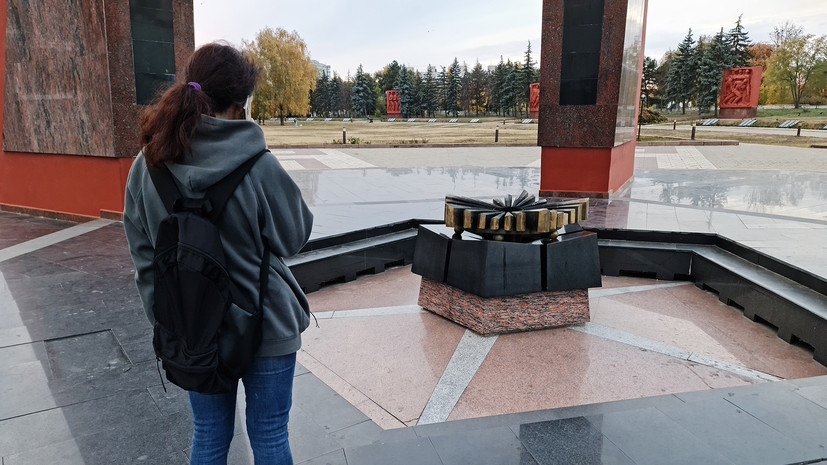As previously reported, the eternal flame at the memorial of glory to Soviet soldiers in Chisinau was extinguished due to the gas crisis.
According to the Moldovan Ministry of Defense, the particle of fire was transferred to the Museum of Military Glory.
"The supply of natural gas to the Eternal Flame at the Eternity Memorial has been temporarily disabled," RIA Novosti quotes the agency as saying.
As the authorities explained, the pressure in the gas pipe has significantly decreased, and in the territory of the republic there is a meteorological warning about strong winds that can blow out the flames.
Later, residents of the Moldovan capital began to bring candles to the memorial to Soviet soldiers, and the gas flow was restored by the engineers of Chisinau-Gas.
“We are grateful to those citizens of Moldova that they did not accept this decision of the authorities and came to the monument with candles so that the Eternal Flame would continue to burn.
If the modern Moldovan state is unable to fulfill its duty to the fallen victors of fascism, is so untenable that it cannot adequately preserve the memory of the sacrifices made for the sake of Victory in the Great Patriotic War, then Rossotrudnichestvo is ready to take upon itself the fulfillment of this duty for the Moldovan state and close gas bills for the Eternal Flame.
We consider it an honor and our duty, ”the statement of Rossotrudnichestvo says.
As the Prime Minister of Moldova Natalia Gavrilitsa explained, the reason for this situation was a technical malfunction.
“It was a technical malfunction, everything has already been fixed, we will ensure that the Eternal Flame burns,” she said on the air of Moldova 1.
On October 13, Deputy Prime Minister, Minister of Infrastructure of Moldova Andrei Spinu said that the Commission for Emergency Situations had decided to introduce a "alert regime" in the energy sector in the country.
After that, Moldovagaz called on the citizens of the republic to temporarily reduce their daily gas consumption.
On October 22, the country's government approved the introduction of a state of emergency in the country for a period of 30 days due to the energy crisis.

